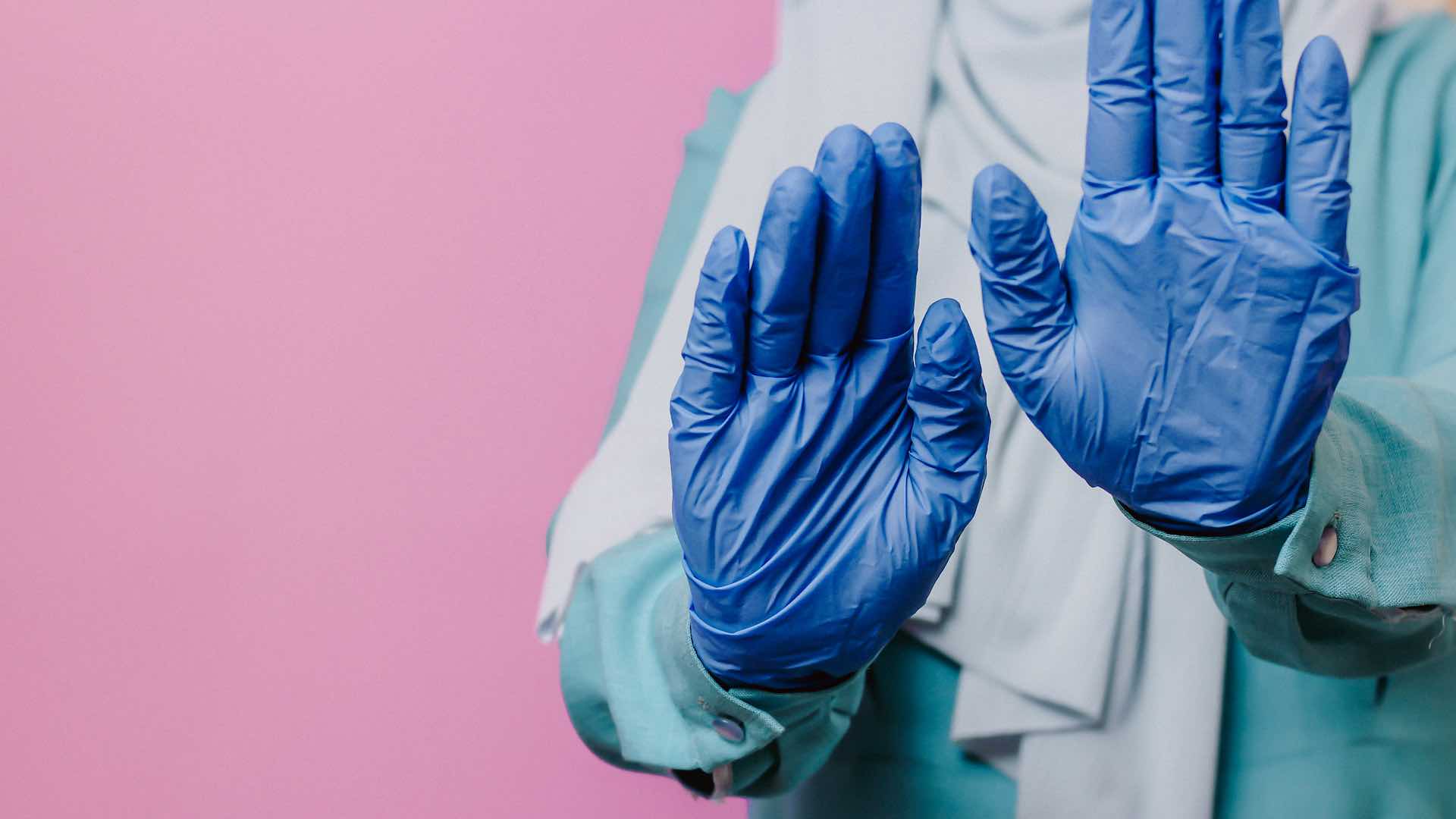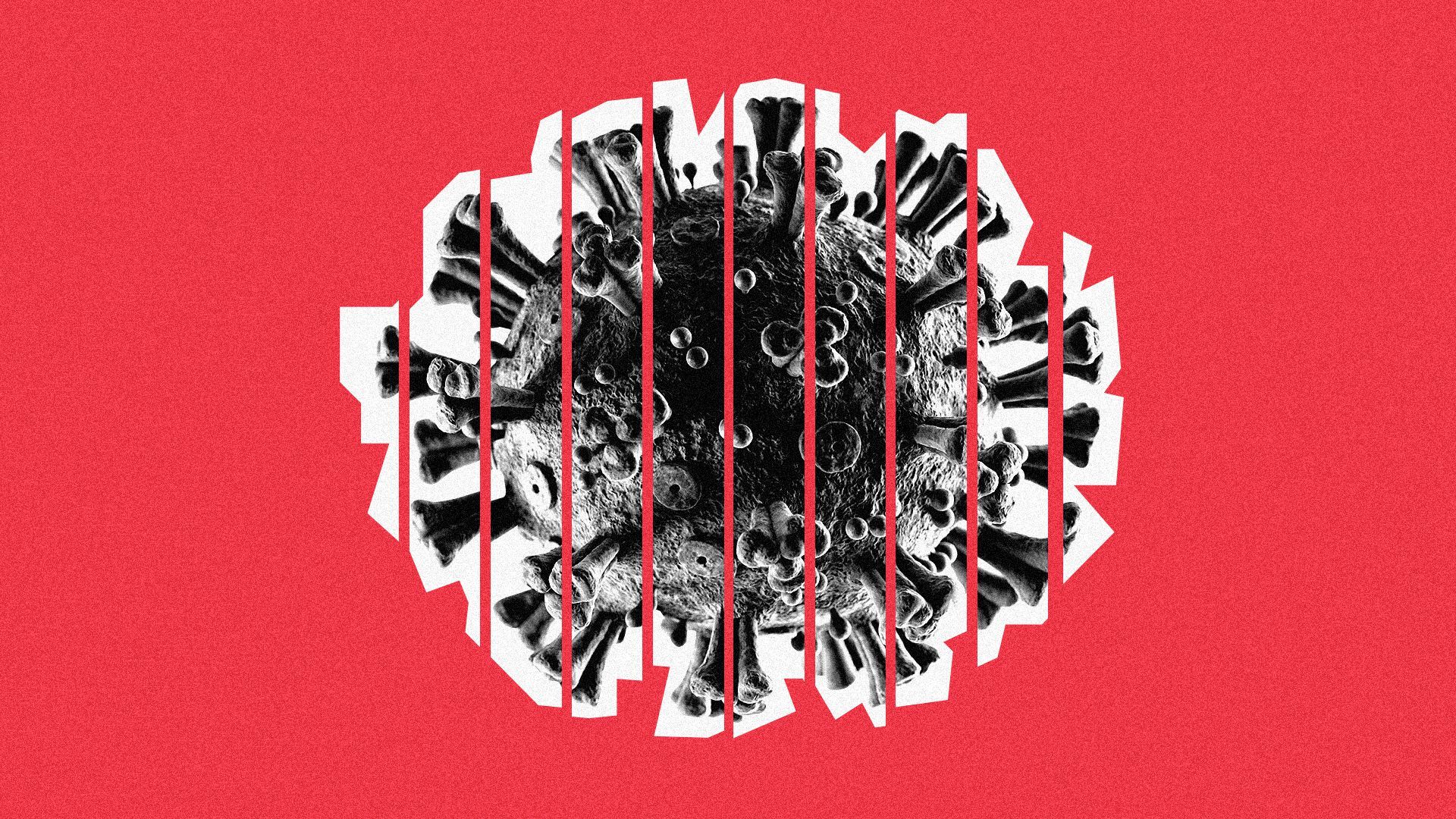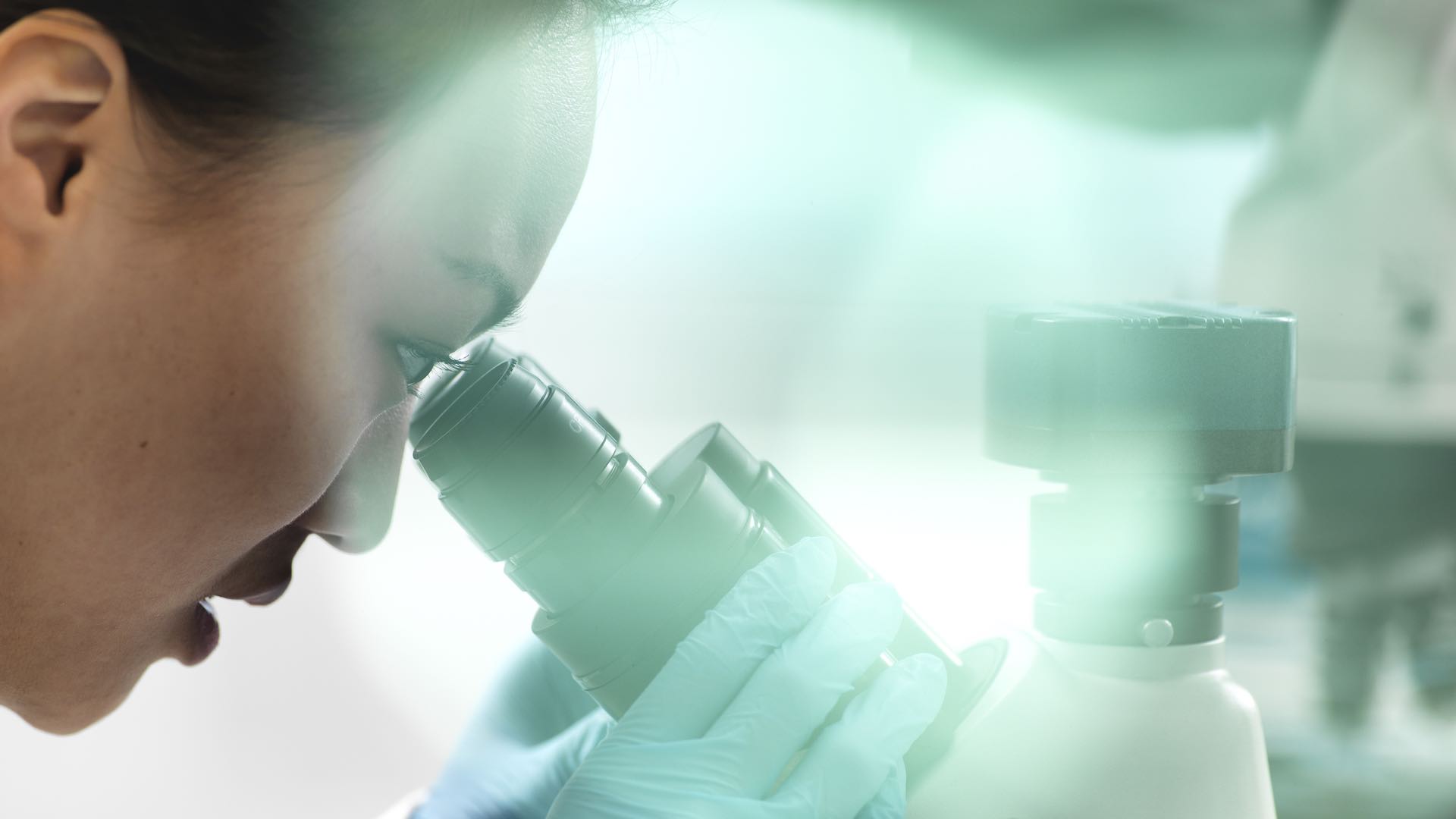| | | | | | | Presented By PhRMA | | | | Vitals | | By Caitlin Owens ·Sep 28, 2020 | | Good morning. 📷 Tonight on "Axios on HBO": - Jonathan Swan presses renowned journalist Bob Woodward on his coverage and why he spoke out about President Trump being the "wrong man for the job." (clip)
- In back-to-back segments, Planned Parenthood president Alexis McGill Johnson and Susan B. Anthony List president Marjorie Dannenfelser outline what life could look like in a post-Roe v. Wade world.
- Andre Perry, a Brookings fellow and the author of Know Your Price: Valuing Black Lives and Property in America's Black Cities, talks about the racial wealth gap and the possible paths toward reparations for Black Americans.
Tune in at 11pm ET/PT on all HBO platforms. Today's word count is 1,062, or a 4-minute read. | | | | | | 1 big thing: The childless vaccine |  | | | Illustration: Eniola Odetunde/Axios | | | | It'll likely be a long time before children are vaccinated against COVID-19, even though vaccinating kids could eventually play an integral role in reducing the virus' spread, Axios' Dan Primack and I report. The big picture: None of the leading contenders in the U.S. are being tested for their effectiveness in children. Even once one of them gains authorization from the Food and Drug Administration, there will only be a limited number of available doses. - It's normal for vaccines to be tested on adults before being tested on children.
Why it matters: Children have a relatively low risk of severe coronavirus infections. But they can still spread the disease to more vulnerable adults. Vaccinating kids could play an integral role in reducing community spread, and of reopening schools. - For now, the consensus is that those vulnerable adults — which could include teachers and school staff — will likely be able to get a vaccine early in the process. Eventually, though, vaccinating children would be helpful.
- "If you protect children, then you will reduce community spread and protect adults," explains John Moore, a professor of immunobiology at Weill Cornell Medical College.
Regulators and vaccine developers will face a series of difficult decisions, once it comes time to start testing a vaccine in children — likely the first big controversy in this phase of the vaccine race. - Move too fast, and parents will question whether the product is safe. Move too slow and the virus will be with us longer.
- "I think they'll try to come up with a compromise that gives them some safety information in the minimal amount of time possible," says the Mayo Clinic's Rick Kennedy.
Go deeper. |     | | | | | | 2. Why kids get less severe infections | | Speaking of children and the coronavirus, a new study suggests that the reason why children get less severe infections than adults is because they have a different immune response, NYT reports. What they're saying: "The bottom line is, yes, children do respond differently immunologically to this virus, and it seems to be protecting the kids," Betsy Herold, a pediatric infectious disease expert at Albert Einstein College of Medicine who led the study, told the Times. - The study was published in Science Translational Medicine.
Details: The body has what's called an innate immune response when it encounters an unfamiliar pathogen, and this response is quicker and stronger in children than adults. That's because they're frequently exposed to new pathogens. - Adults, on the other hand, have built up more specialized immune responses over time to specific threats, and the innate system fades over time.
- Since the coronavirus is new to everyone, this gives children an advantage.
Yes, but: Like many other studies on the virus, this one enrolled patients too late in the infection to really understand the innate immune system's immediate response, some experts said. What we're watching: Children may eventually develop defenses against the virus that keeps them from ever experiencing the same level of infection severity as today's adults, if the virus becomes endemic. - "We will eventually age out of this virus," Michael Mina, a pediatric immunologist at the Harvard T.H. Chan School of Epidemiology, told NYT.
|     | | | | | | 3. The long-term pain of the mental health pandemic |  | | | Illustration: Sarah Grillo/Axios | | | | A less visible but still massive trauma caused by the coronavirus is becoming clear: our mental health is suffering with potentially long-lasting consequences, Axios' Bryan Walsh reports. Why it matters: Mental health disorders that range from schizophrenia to depression and anxiety exert a severe cost on personal health and the economy. Addressing that challenge may require out-of-the-box solutions. What's happening: During the early stages of the COVID-19 pandemic in the U.S., there were significant increases in acute stress and depressive symptoms, according to a study published earlier this week in Science Advances. - Higher levels of exposure to COVID-19-related media worsened symptoms as well, especially if that media contained conflicting information about the coronavirus — which, of course, has largely been the case since the start of the pandemic.
Context: A deep body of scientific research shows that experiencing collective traumas like a mass shooting or a natural disaster can lead to lasting mental health damage. But what sets the pandemic apart is its global scope and its sheer length. - And the pandemic is unfolding next to ongoing protests against racial violence and deepening uncertainty about the outcome of the 2020 election.
The bottom line: Given the open-ended trauma of the pandemic and the general chaos of 2020, feeling depressed is more logical than pathological. But we desperately need better solutions to the lasting pandemic that is mental illness, even after COVID-19 is finally vanquished. Go deeper. |     | | | | | | A message from PhRMA | | Biopharma is progressing in the fight to beat COVID-19 | | |  | | | | Biopharmaceutical companies across the country are collaborating in new ways to help defeat the coronavirus. The results: In a matter of weeks they've gone from potential treatments to antibodies and antivirals that have shown positive results. See how science can help us get back to normal. | | | | | | 4. Child mortality continues to fall |  Data: The World Bank; Chart: Axios Visuals New data shows the mortality rate for children under five is continuing to fall, as improvements in nutrition and health reduce the earliest and most tragic deaths, Bryan writes. Why it matters: The continued decline in the youngest deaths is one of humanity's greatest victories, but the COVID-19 pandemic puts some of that progress in danger. By the numbers: Data released this month by the World Bank shows the mortality rate for children under five has fallen by 59% over the past 29 years. - That still means 5.2 million children under five died in 2019 — or more than 14,000 each day.
- But as recently as 1960, nearly one out of every five children globally died before their fifth birthday. In 1800, it was nearly one out of every two.
Of note: Child mortality is increasingly concentrated in a few geographic areas, especially sub-Saharan Africa, where one in 13 children die before turning five. The catch: Development experts worry COVID-19 could slow or even reverse progress on child mortality, less because of the virus itself than because the pandemic may disrupt distribution of needed medicine and food. The bottom line: It's entirely reasonable to look at the state of the world today and feel depressed. But there are millions of children alive today who will live to see their fifth birthday and many more, because they were born in 2020 and not 30 years ago. That matters, too. |     | | | | | | 5. Catch up quick |  | | | Illustration: Aïda Amer/Axios | | | | The U.S. reported 55,054 new coronavirus cases on Friday, according to Johns Hopkins University data. Less than 10% of the U.S. population has coronavirus antibodies, a study published in The Lancet on Friday found. Japan's newly elected Prime Minister Yoshihide Suga says he is committed to hosting the 2020 Olympics in Tokyo come summer 2021, per AP. France's second wave "is arriving faster than we thought," as coronavirus cases surge, the head of the National Council of the Order of Doctors said Sunday, per AFP. India's Prime Minister Narendra Modi said during a UN General Assembly address Saturday that the country's "vaccine production and delivery capacity will be used to help all humanity in fighting this crisis." New York on Friday reported more than 1,000 new coronavirus cases for the first since June. Florida Gov. Ron DeSantis (R) announced Friday the state will completely reopen its economy, allowing restaurants to operate at full capacity and barring localities from ordering businesses to close. |     | | | | | | A message from PhRMA | | The biopharma industry commits to defeat COVID-19 | | |  | | | | America's biopharmaceutical companies have the goal to defeat the coronavirus. What this means: The biopharma industry is working closely together and collaborating in unprecedented ways to speed up the development of a vaccine and treatments. Watch the video. | | | | | | Axios thanks our partners for supporting our newsletters.
Sponsorship has no influence on editorial content. Axios, 3100 Clarendon Blvd, Suite 1300, Arlington VA 22201 | | | You received this email because you signed up for newsletters from Axios.
Change your preferences or unsubscribe here. | | | Was this email forwarded to you?
Sign up now to get Axios in your inbox. | | | | Follow Axios on social media:    | | | | | |












